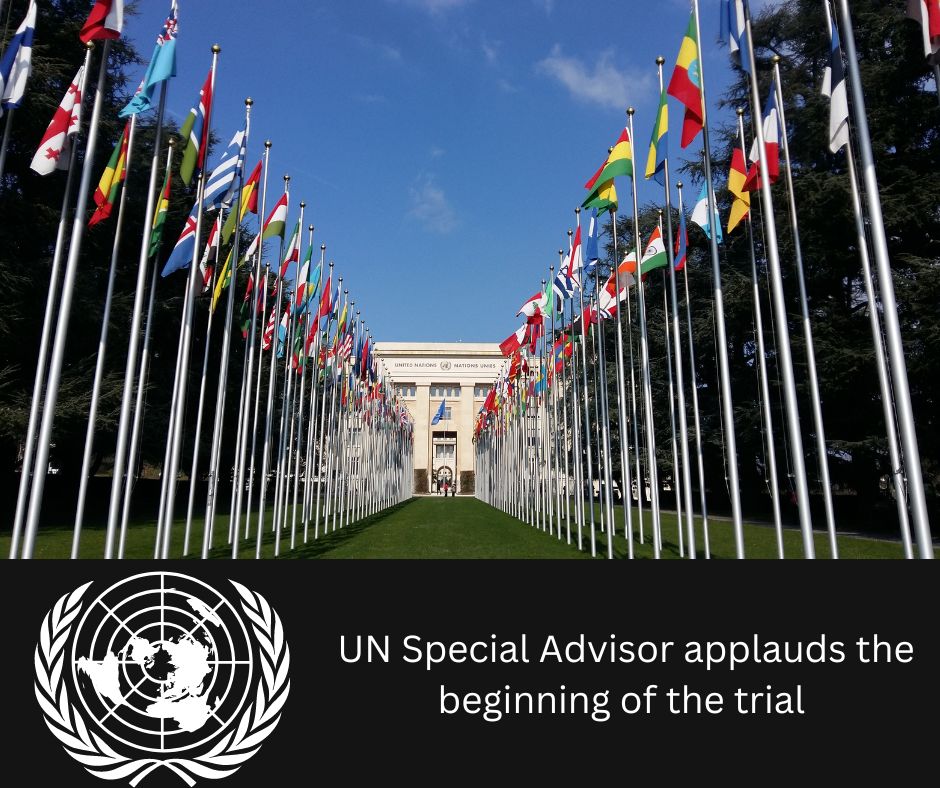Summary: The trial of Félicien Kabuga, the founder of Radio Télévision Libre des Mille Collines, is set to begin in The Hague on Thursday. He is accused of committing crimes against humanity such as genocide, extermination, and murder. Hate speech can potentially provoke violence and even genocide in its most extreme forms. Preventing atrocity crimes necessitates effective action against hate speech, Ms. Nderitu said. She urged nations to keep assisting the IRMCT in locating, apprehending, holding, surrendering, and transferring accused individuals.
Thursday and Friday are scheduled as the opening days of the trial for Félicien Kabuga at the International Residual Mechanism for Criminal Tribunals (IRMCT) of the UN, which is based in The Hague.
According to his indictment, Mr. Kabuga was a founder of Radio Télévision Libre des Mille Collines, whose broadcasts promoted hatred and violence against the Tutsi ethnic group and others.
He is accused of committing crimes against humanity such as genocide, direct and public incitement to commit genocide, conspiracy to commit genocide, persecution for political reasons, extermination, and murder.
Safety measures and responsibility
In a statement released on Wednesday, UN Special Adviser on Genocide Alice Wairimu Nderitu said, “Our common determination to not forget constitutes a commitment to prevent.”
She continued, “Accountability is preventive in and of itself, and hence a deterrent for future offences.”
According to Ms. Nderitu, victims may receive compensation for the flagrant and persistent abuses of human rights and humanitarian law they have experienced through fair and reliable legal proceedings.
Additionally, they can aid in avoiding and addressing retaliation-related thoughts and sentiments as well as feelings of frustration and resentment.
She cautioned that when justice is not given, unresolved feelings of injustice may contribute to more violence and even atrocity crimes.
Shared accountability
The Special Adviser praised the crucial work done by the UN Mechanism to ensure accountability for grave international crimes, particularly in light of Mr. Kabuga’s alleged involvement in the Rwandan genocide against the Tutsi, which resulted in the deaths of moderate Hutu, Twa, and other people who opposed the genocide.
Ms. Nderitu emphasized that hate speech exacerbates intercommunity distrust.
Additionally, it weakens social connections across groups and promotes what she called “an ‘us versus them’ narrative.”
Hate speech can potentially provoke violence and even genocide in its most extreme forms.
She asserted that preventing atrocity crimes necessitates effective action against hate speech and incitement to prejudice, hatred, or violence from all key players.
“Hate speech practically always precedes atrocity attacks.”
Therefore, if we genuinely want to stop atrocity crimes, we need to pay close attention to this occurrence, she continued.
Support the UN process.
Following a collaborative investigation with the IRMCT, French authorities detained Mr. Kabunga in Paris in May 2020.
He is one of the most sought men in the world and has been on the UN Mechanism’s wanted list since 2013.
The international tribunals for Rwanda, which ended in December 2015, and the former Yugoslavia, which came to an end two years later, have been replaced by the IRMCT.
Ms. Nderitu also urged nations to keep assisting the IRMCT in locating, apprehending, holding, surrendering, and transferring accused individuals who are still at large.
Through the UN action plans, she also asked the international community to step up efforts to confront and fight hate speech and prevent violent incitement.
Analysis by: Advocacy Unified Network

